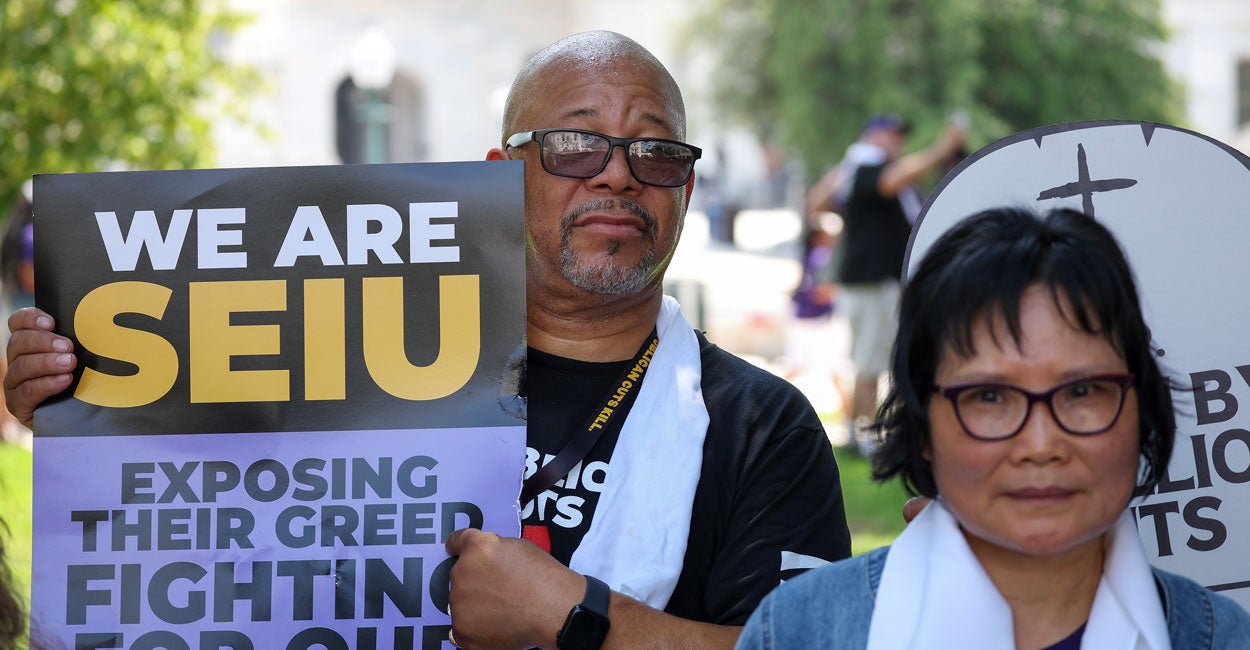


Chances are, the last time you went to the supermarket, the clerk at the checkout stand thanked you for your business.
And you thanked her back.
You were both being polite, of course, but there was more to it than that. In fact, you were expressing the essence of capitalism: In a free-market economic system, there can be no transaction unless both parties walk away feeling they got what they wanted.
You may have sticker shock when you see how much more your groceries cost than they did even a year before, but they’re still worth more to you than the dollars you trade for them.
And vice versa.
It’s a voluntary exchange. Value for value. Everyone benefits.
That’s why it works.
That’s also why government employee unions are struggling to survive these days. They don’t provide value, and their members are getting wise to it.
Oh, they promise value. Union leaders love to claim members earn more than nonmembers but, under the law, a public-sector union is required to equally represent all the workers in its designated bargaining unit—even those who’ve opted out or never joined in the first place.
That’s a trade-off the unions gladly make in return for being handed a representation monopoly over a state, county or city’s workforce.
Which begs the question: If members and nonmembers benefit equally from the same contract, why does anyone still bother to join?
Apparently, it’s for the unique privilege of having the majority of your dues dollars siphoned off to underwrite failed leftist candidates and causes that have nothing whatever to do with your wages or working conditions.
In theory, the U.S. Supreme Court fixed the problem with its 2018 ruling in Janus v. AFSCME, which banned mandatory union membership and dues requirements for government jobs and recognized the right of workers who want nothing to do with a union to opt out of both without losing their job.
But rather than simply complying with the law, unions have spent the ensuing seven years devising countless shady schemes to defy the court and suppress the rights of their rank and file.
These include:
Dozens of such actions have been litigated—including numerous appeals to the U.S. Supreme Court—but thus far, the justices have stubbornly refused to consider a case that would allow Janus to actually be enforced.
Hundreds of thousands of public employees have successfully opted out of union membership and dues during that span, but millions more may want to—and might already have done so absent the obstacles thrown in their path by the unions and their corrupt allies in elected office and the judiciary.
Small wonder union leaders are in almost every circumstance diehard socialists, right down to their sympathy for illegal immigrants who take jobs away from their own members.
The preferred business model for both is to take what they want from people who have no choice in the matter while providing no value in return.
And like the authoritarian countries whose governing style their leaders admire so much, unions must build metaphorical walls to ensure their oppressed population never gets even a whiff of what’s on the other side.
These days, you’re about as likely to see unions overwhelmed by a flood of enthusiastic new recruits as you are an American sneaking across the border into Somalia.
And for the same reason. In the real world, free men and women expect value in return for value. But in unions and socialist hell holes, the concept of give and take has an altogether different meaning—you give, they take.
We publish a variety of perspectives. Nothing written here is to be construed as representing the views of The Daily Signal.
